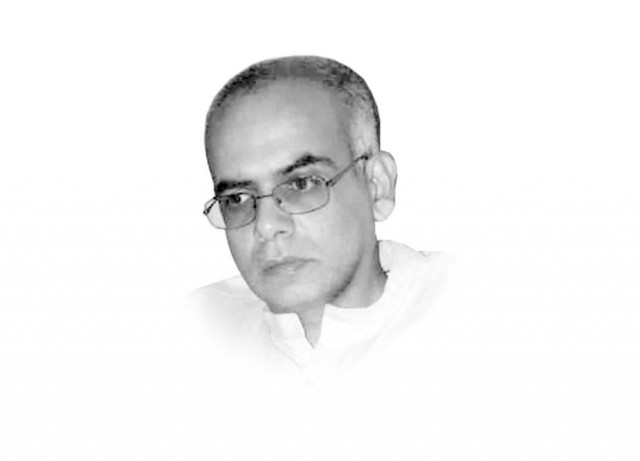Buddhist rage against Muslims in Sri Lanka
Violence targeting the minorities came to the fore during colonial rule

The writer is a development anthropologist. He can be reached at ali@policy.hu
A majority of the Sri Lankan population is Sinhalese and mainly Buddhist with mostly Tamils Hindu being the largest minority. The country’s second-largest minority is Muslims, who are under ten per cent of the population. The violence against Muslims in Kandy in March is the recent example of the growing communal rift in Sri Lanka. A long and bloody civil war with ethnic Tamil separatist rebels ended in 2009, but since then, Sri Lanka has seen the rise of militant Buddhist groups, such as Bodu Bala Sena (BBS).
The BBS, founded in 2012, was blamed for orchestrating communal rioting in 2014, when Muslims and their property were attacked by Sinhalese Buddhists across towns in the southwest of the country. The Sri Lanka Muslim Council has called for an independent and transparent inquiry, to bring the responsible to justice for the violence and religious zealotry. However, this more penetrative approach to addressing the cause of communal tensions was not pursued. The mainstream media instead began censoring news about the riots following orders from the strong-arm Rajapaksa government, which has recently quashed the Tamil insurgency.
After the communal violence erupted in Kandy recently, the government had to declare a 10-day state of emergency. While this drastic measure curbed the violence from spreading, the more deep-seated problem of how hardline Buddhist groups are being strengthened in their actions by a culture of impunity is still not being adequately addressed.
Violence targeting the minorities came to the fore during colonial rule. Tamils, Christians and Muslims were seen to have been complicit with colonial rule, evoking resentment among Sinhalese-Buddhists during and after the independence struggle. After the withdrawal of the British, the Sinhalese-Buddhist nationalist project began depicting Tamils as “the enemy”. Persistent harassment led the Tamils to launch a bloody insurgency, which was brutally crushed in 2009 while Tamils still report instances of discrimination and persecution, now the Muslims are emerging as the new perceived threat.
While the Sri Lankan state moved swiftly to prevent the communal violence in Kandy spreading further, the possibility of communal violence erupting again remains a serious threat. Some Buddhist nationalist groups have begun protesting the presence of Rohingya refugees in Sri Lanka, who have fled Buddhist violence in Myanmar. On the other hand, Sri Lankan analysts are warning that the violence being systematically unleashed on Muslims, like the Tamils, could radicalise Muslim youth and marginalise Muslim moderates.
The Sinhalese vastly exceed Tamils and Muslims in numbers, so it is absurd that they feel outnumbered by them. Yet BBS and other extremist outfits continue to stoke Sinhalese insecurities and portray the island’s Tamils and Muslims as “foreigners”. Scholars have noted how this “minority complex” has resulted in Sinhalese viewing themselves as victims, who are justified in acting violently to defend the island.
This so-called minority complex is not unique to Sri Lanka. Consider the mob violence against Christians, and the forced abductions and conversions of Hindus in Pakistan, or the repeated violence against Muslims in India. Unfortunately, alongside Islamic and Hindu extremist groups in Pakistan, India and Bangladesh, South Asia now also has Buddhist extremists (like those in Myanmar), who are adamant to exert their righteous wrath over fellow religious-minority citizens.
Published in The Express Tribune, May 11th, 2018.
Like Opinion & Editorial on Facebook, follow @ETOpEd on Twitter to receive all updates on all our daily pieces.














COMMENTS
Comments are moderated and generally will be posted if they are on-topic and not abusive.
For more information, please see our Comments FAQ